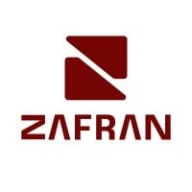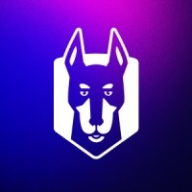


Snyk and Microsoft Defender for Cloud compete in the security management category. Snyk holds an advantage due to its simplicity and ease of integration, appealing to developer-focused applications, whereas Microsoft Defender for Cloud is preferred for comprehensive security coverage suitable for multi-cloud organizational infrastructure.
Features: Snyk is appreciated for its simplicity, easy integration into CI systems, and a precise vulnerability database. It enables fast deployment with self-service capabilities and has strong integration options. Microsoft Defender for Cloud is recognized for its robust security features, extensive threat intelligence, and multi-cloud support. It offers policy-based protection and provides detailed security recommendations.
Room for Improvement: Snyk could enhance its offerings by including more scanning types such as SAST and DAST, improving language support, and refining notification filtering. Microsoft Defender for Cloud could benefit from better real-time threat detection and multi-cloud integration capabilities, alongside a more user-friendly UI and detailed remediation processes.
Ease of Deployment and Customer Service: Snyk is easily deployed across a range of cloud and on-prem environments and offers rapid and reliable technical support. Microsoft Defender for Cloud is also straightforward to deploy, particularly within Azure, but may require specialized knowledge for hybrid integrations. Both products are supported by generally positive technical support, albeit with room for more proactive engagement.
Pricing and ROI: Snyk provides a scalable pricing model that is considered premium but justified by its extensive coverage and notable productivity benefits. Microsoft Defender for Cloud offers competitive pricing, especially appealing for Azure users, and delivers significant ROI through its comprehensive feature set, though it can be seen as costly by some.
| Product | Market Share (%) |
|---|---|
| Microsoft Defender for Cloud | 5.1% |
| Snyk | 3.1% |
| Zafran Security | 1.0% |
| Other | 90.8% |



| Company Size | Count |
|---|---|
| Small Business | 26 |
| Midsize Enterprise | 7 |
| Large Enterprise | 45 |
| Company Size | Count |
|---|---|
| Small Business | 20 |
| Midsize Enterprise | 9 |
| Large Enterprise | 21 |
Zafran Security integrates with existing security tools to identify and mitigate vulnerabilities effectively, proving that most critical vulnerabilities are not exploitable, optimizing threat management.
Zafran Security introduces an innovative operating model for managing security threats and vulnerabilities. By leveraging the threat exposure management platform, it pinpoints and prioritizes exploitable vulnerabilities, reducing risk through immediate remediation. This platform enhances your hybrid cloud security by normalizing vulnerability signals and integrating specific IT context data, such as CVE runtime presence and internet asset reachability, into its analysis. No longer reliant on patch windows, Zafran Security allows you to manage risks actively.
What are the key features of Zafran Security?
What benefits can users expect from Zafran Security?
In industries where security is paramount, such as finance and healthcare, Zafran Security provides invaluable protection by ensuring that only exploitable vulnerabilities are addressed. It allows entities to maintain robust security measures while allocating resources efficiently, fitting seamlessly into existing security strategies.
Microsoft Defender for Cloud is a comprehensive security solution that provides advanced threat protection for cloud workloads. It offers real-time visibility into the security posture of cloud environments, enabling organizations to quickly identify and respond to potential threats. With its advanced machine learning capabilities, Microsoft Defender for Cloud can detect and block sophisticated attacks, including zero-day exploits and fileless malware.
The solution also provides automated remediation capabilities, allowing security teams to quickly and easily respond to security incidents. With Microsoft Defender for Cloud, organizations can ensure the security and compliance of their cloud workloads, while reducing the burden on their security teams.
Snyk excels in integrating security within the development lifecycle, providing teams with an AI Trust Platform that combines speed with security efficiency, ensuring robust AI application development.
Snyk empowers developers with AI-ready engines offering broad coverage, accuracy, and speed essential for modern development. With AI-powered visibility and security, Snyk allows proactive threat prevention and swift threat remediation. The platform supports shifts toward LLM engineering and AI code analysis, enhancing security and development productivity. Snyk collaborates with GenAI coding assistants for improved productivity and AI application threat management. Platform extensibility supports evolving standards with API access and native integrations, ensuring comprehensive and seamless security embedding in development tools.
What are Snyk's standout features?Industries leverage Snyk for security in CI/CD pipelines by automating checks for dependency vulnerabilities and managing open-source licenses. Its Docker and Kubernetes scanning capabilities enhance container security, supporting a proactive security approach. Integrations with platforms like GitHub and Azure DevOps optimize implementation across diverse software environments.
We monitor all Vulnerability Management reviews to prevent fraudulent reviews and keep review quality high. We do not post reviews by company employees or direct competitors. We validate each review for authenticity via cross-reference with LinkedIn, and personal follow-up with the reviewer when necessary.